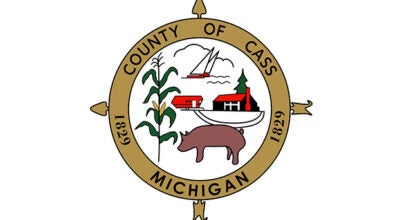Dowagiac Creek land purchase meeting draws big crowd
Published 8:00 am Thursday, March 27, 2014

An outline of the area around McKenzie Street the DNR is proposing to purchase. The land is currently owned by Westrate Farms LLC. The owners of which want to sell to the property to state to ensure continued public access to the Dowagiac Creek. (Submitted graphic)
For department representative Jay Wesley, the fact around 30 people attended the Michigan Department of Natural Resource’s public hearing about the possible purchase of land around Dowagiac Creek was quite shocking.
Even more shocking to him was the fact the audience had nothing but good things to say about it.
“Typically, we don’t draw big crowds for hearings like this, and when we do it’s because people are angry about what we want to do,” Wesley said.
Held at the Cass District Library Tuesday evening, Wesley explained the details about the department’s interest in acquiring a 120-acre parcel of land near McKenzie Street outside Cassopolis from Westrate Farms. By purchasing the land, the DNR will ensure public access to the Dowagiac Creek, which it has protected for more than 40 years, stocking it with brown trout.
“What makes Dowagiac Creek unique to us as a fishery is that most of its water comes out of the ground,” Wesley said. “But it starts out in the lake, so it starts off fairly warm. It actually takes a while for that ground water to pump in and actually start cooling it.”
Because of this, portions of cooler water in the creek make suitable locations for trout fisheries, especially around Russ Forest, Wesley said.
One of the concerns the DNR spoke of concerning future management of the creek is an invasion of beavers, whose dams could cause issues with the present ecosystem, he said.
“Any type of beaver activity that would create damming and holding back water in this section of the creek could raise the temperature in the summer, and make it inhabitable for trout,” Wesley said.
The DNR answered questions from the audience during the hearing as well, including inquiries about the management of the property should the DNR purchase it.
“Typically, when we buy property just for fishing access, there’s very limited management,” Wesley said. “It’s just picking up trash and making sure there’s a proper parking area.”
Another question that was raised was whether or not the possible demolition of Pucker Street Dam in Niles would affect the creek or its ecosystem. Wesley said that, should the dam come down, it wouldn’t affect the fishing areas surrounding the land.
“If it passes, steelhead or salmon would be stopped at the City of Dowagiac, because of the dams,” he added.
Water levels would not be affected as well, Wesley said.
The DNR representative also explained that the funds for the sale would be provided by a grant from the Michigan Natural Resources Trust Fund, which they will submit an application to before April. Should they be approved, the sale should be finalized about nine months to a year from now, Wesley said.
When asked if they would like to see additional land purchases from the DNR in the region, several hands in the audience shot up.
“Most of our interest in new purchases is going to be in Southern Michigan,” Wesley said. “We are interested in purchasing as well, so it’s good to know there’s community support for that.”
Also in attendance at the meeting was Bill Westrate, who, along with his family, is offering to sell the land to the state. His family has farmed on the land for 43 years, and they have allowed the public access there on a number of occasions, including use for studies from Notre Dame, Michigan State University and Western Michigan University, he said.
“[The land] has been used by the public ever since we’ve owned it,” Westrate said. “We’ve supported that, and we’ve never had a bad trout fisherman.”
By selling the property to the state, the Westrates can ensure that the property’s ecosystem remains protected and maintained, which wouldn’t be a guarantee should the family place it on the private market, Westrate said.
“To me, personally, the farm was a job,” Westerate said. “Nature was what I was always passionate about.”






